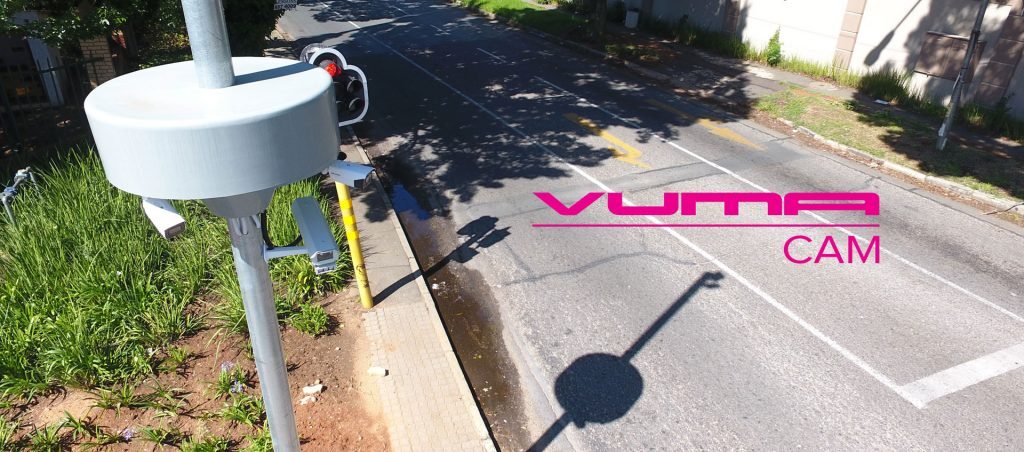Fibre infrastructure company Vumatel has announced it’s in the process of rolling out thousands of smart CCTV cameras around Johannesburg’s suburbs via a subsidiary called Vumacam. It plans to deploy up to 15,000 cameras around the city, capable of capturing ultra-high-definition footage the company then plans to sell to security companies. The project is a joint venture between Vumatel and Imfezeko Holdings and has rolled out to over 900 poles (each of which can house multiple cameras) to date.
Licence plate recognition (LPR) software will be used to analyse the footage, allowing security firms to track stolen vehicles, for example. Vumatel says every vehicle passing an LPR camera is checked against multiple databases of verified vehicles of interest (VOI), including the South African Police Service’s (SAPS) listed stolen vehicles, forged plates and perpetrators on the run. Security professionals monitor the feed, overlay analytics, and access the LPR solution from a centralised video management system.
Big Vuma’s watching
The biggest advantage of Vumacam over existing CCTV solutions is, Vumatel says, interoperability. Existing security cameras tend to belong to specific security companies and only cover specific areas. Vumatel’s solution, meanwhile, could make it possible to track someone (or something) as it moves across the entire network of cameras.
Also, most CCTV footage is low-res, and thus often not terribly useful, a hurdle Vumacam’s promising to overcome by leveraging Vumatel’s existing fibre network, which includes areas covered by Fibrehoods, which Vumatel acquired.
“CCTV footage should have forensic value,” Vumatel says in a release sent to media on Thursday afternoon. “Our video management platform has built-in functions for encryption, strong password protection and immutable time-stamping. This ensures that footage can be viewed only by authorised viewers and evidences that the video has not been altered or manipulated.”
No private chancers
Vumatel says the Vumacam system complies with the requirements of the Protection of Personal Information (PoPI) Act and that security companies that enter into contracts with it to use its footage will have to agree to being audited from time to time to ensure that remains the case.
The company says it will only “contract with vetted security providers” for access to the video feeds from the network of cameras. It also hopes to partner with residents’ associations. In other words, it sounds like if you’re a private resident looking to get at footage so you can prove your neighbour stole your wheely bin (or poisoned your begonias) you’re fresh out of luck. Unless, of course, you’re the head of your residents’ association.
We’re also curious as to whether insurers will be queuing up to subscribe. Access to Vumacam’s footage could well be worth the cost if it helps insurers identify (and not pay out) false claims.
Vumacam may also become just part of a wider network of smart city solutions in due course. “Although we’re primarily focused on keeping communities safer, we see the need for cities to become smarter and more efficient. We hope that we can be a part of that exciting future. These smart-city initiatives could possibly tackle congestion, energy efficiency and emergency care response times, to name a few. As more sensors, and low-power wide area (LPWA) networks grow, smart city technologies will develop, ultimately giving city administrators a more detailed and up-to-date picture of what is happening and ways in which to solve problems.”




